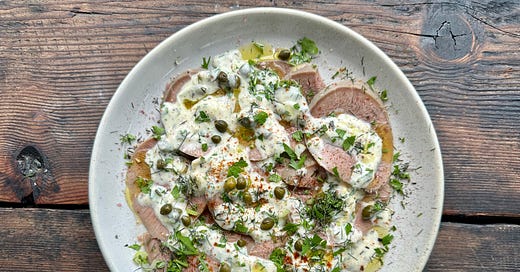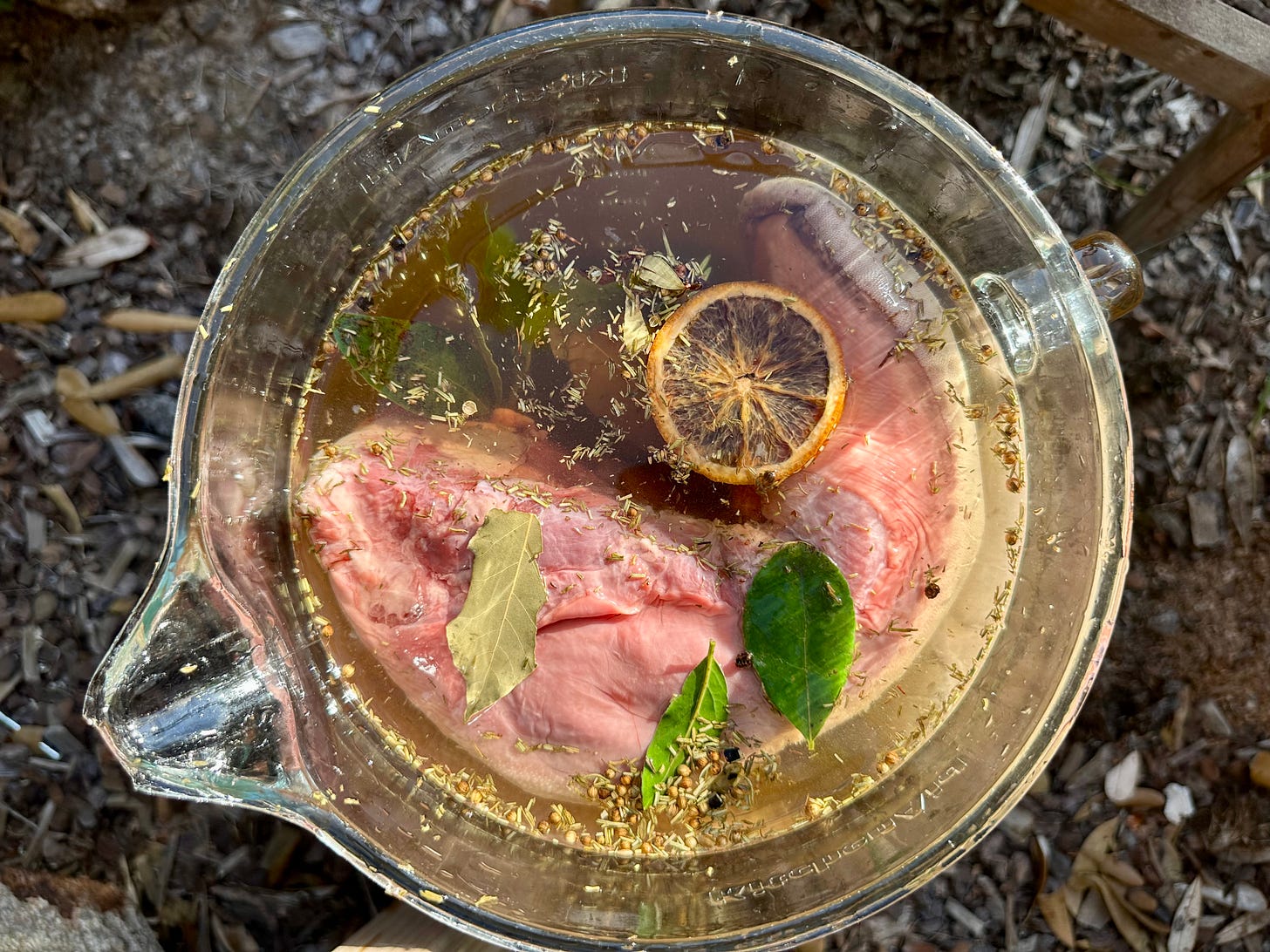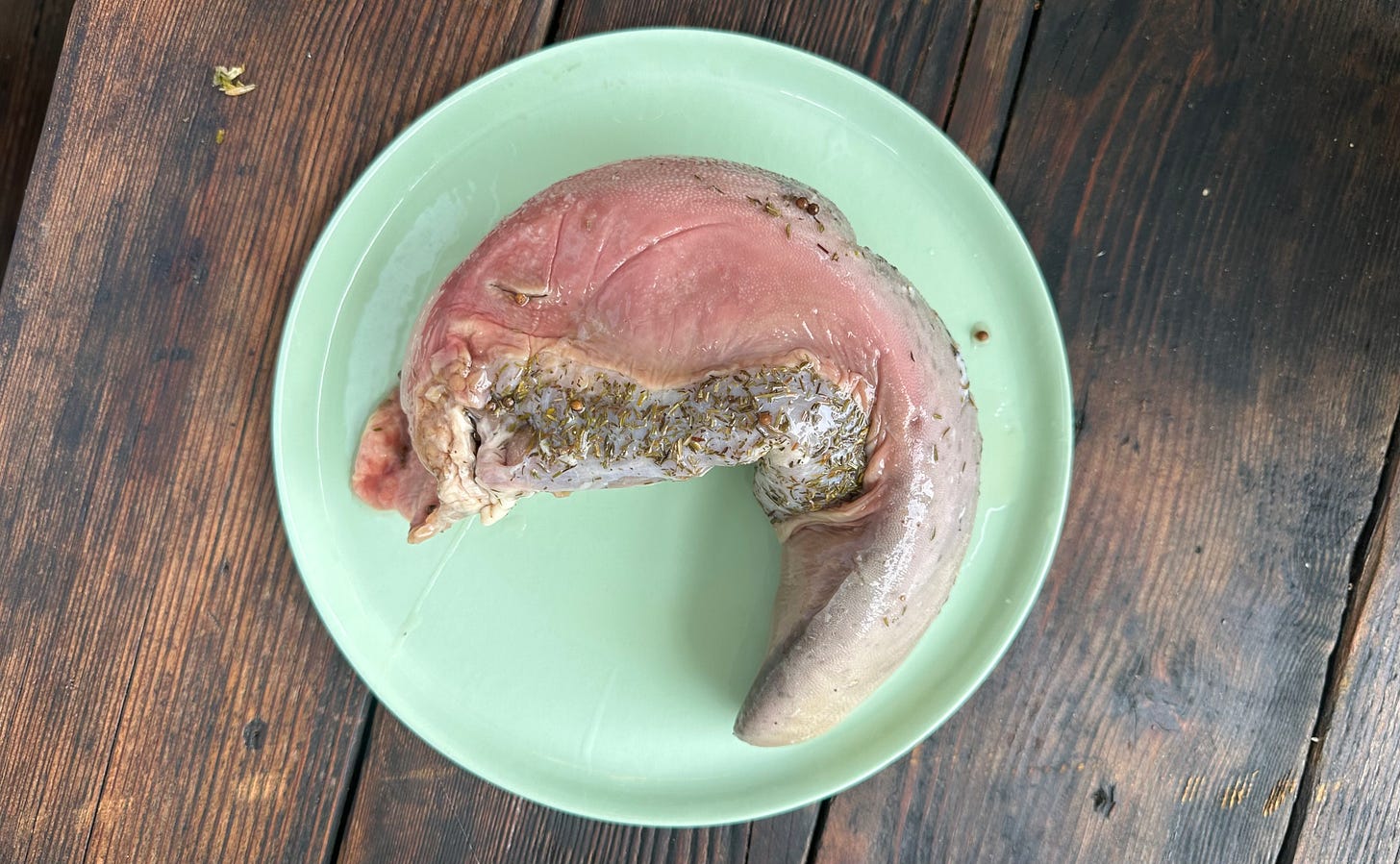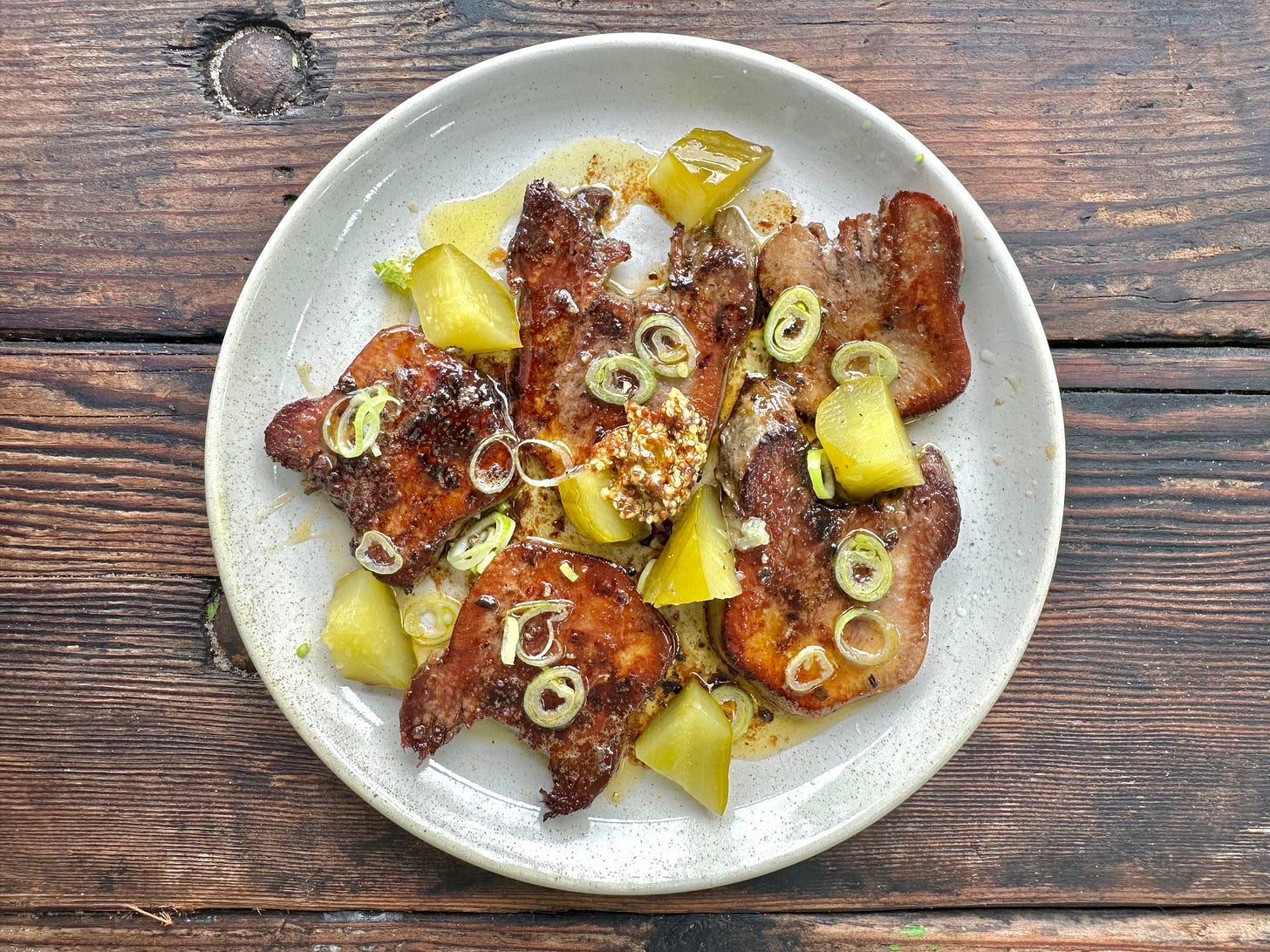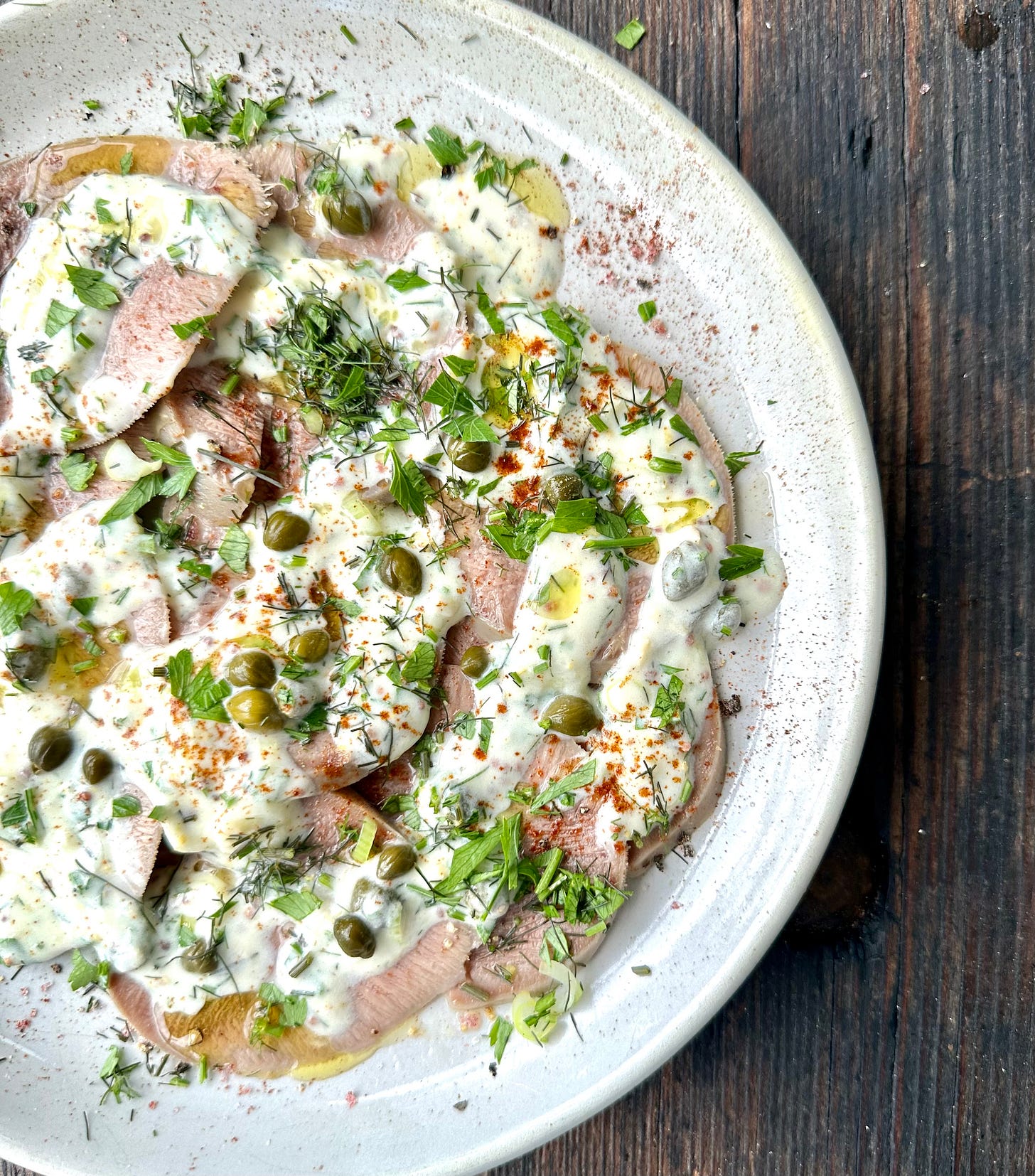Why Tongue?
Cooking and eating ox tongue might sound adventurous to some, but it’s one of those ingredients that truly embodies the ethos of nose-to-tail cooking. It’s an ingredient that is often overlooked by some and avoided by many. Just the thought of eating or cooking tongue is often met with a “Yuck!!!”
A shame, as with a little care, it can be truly delicious.
Slow-cooked, brined, or grilled over coals, ox tongue offers a texture that’s melt-in-your-mouth tender, with a rich flavor. We had tongue on one of the first dinner menus at Three Blue Ducks. Back then, we served it slow cooked and torched with kimchi and miso butterscotch (obviously!). A cracker of a dish by our head chef at the time, Shannon Debreceny. These days, I’ll often pop it on a skewer with a sticky/acidic glaze of some description or thinly slice and toss it through celeriac remoulade.
You can braise it until it’s buttery soft, serve it sliced on warm sourdough with a zesty salsa verde, or char it on the barbecue for a smoky finish. And the best part? It’s surprisingly economical, giving you a whole lot of flavor without breaking the bank.
When it comes to eating ox tongue, there’s a connection to tradition and history, it’s the kind of food that speaks to slow cooking and hearty, rustic meals shared around a table. So, if you’re ready to embrace something a little different, give ox tongue a go. You just might like it!
First up, the all-important brine…
Why Brine?
Brining ox tongue is a game-changer when it comes to preparing this unique cut of meat. Here are five key reasons why:
1. Tenderizes the Meat
Ox tongue can be tough if not prepared properly. Brining helps break down muscle fibers, ensuring the meat is beautifully tender once cooked. This step is especially crucial for achieving that melt-in-your-mouth texture.
2. Enhances Flavor
A well made brine infuses the tongue with subtle, savory flavors. Ingredients like garlic, bay leaves, herbs, and spices can penetrate deep into the meat, ensuring every bite is rich and aromatic.
3. Balances Salt Distribution
Brining ensures even salt penetration, which enhances the meat’s natural flavor without making it overly salty. It also helps the tongue retain its juices during cooking, resulting in a moist, flavorful final dish.
4. Improves Texture During Cooking
The brine helps the tongue cook more evenly, preventing it from drying out or becoming rubbery. This is particularly important if you’re slow cooking or braising it.
5. Preserves and Extends Shelf Life
The salt in the brine acts as a natural preservative, allowing you to keep the tongue fresh for longer before cooking. It’s a traditional technique with practical benefits.
Brine Recipe
2lt water
250g salt
30g brown sugar
A pinch of:
Orange peel, peppercorns, cloves, juniper bay leaves, coriander, fennel seeds
Method
Bring 500ml of the water to a boil. Add the sugar and salt.
Mix to dissolve the sugar and salt then add the flavourings and remaining water.
Leave to cool.
Add the tongue, pop on a plate so the tongue remains submerged.
Leave to brine in the fridge for 24 - 36 hours.
Slow cook
Once the tongue is brined I like to slow cook it.
To do so, simply;
Remove from brine pop the tongue into a large pot of water.
Add 1 chopped onion 4 cloves of garlic, a bay leaf or two and a splash of vinegar.
Bring to a simmer, skin and cook for 2 - 3 hours.
Once cooked remove the outer skin of the tongue ( you’re not sure it’s done just pop in a skewer, it’ll have little resistance)
Cool in some of the cooking liquid until needed.
Tongue steaks, mustard, burnt butter and pickles
150g cooked tongue
2 tsp olive oil
Burnt butter
50g butter
Half a lemon
2 tbsp mirin
1 tsp soy
S&P
(Serve with grain mustard, pickles and green shallots)
Method
Season the tongue with salt and pepper.
Fry in olive oil in a non stick pan until caramelised on both sides.
Remove the steaks and pop on a place.
Deglaze the pan with Mirin wth add butter, cook the butter until nutty brown.
Remove from the heat, add lemon juice and soy.
Spoon over the tongue.
Serve with pickles, green shallots and grain mustard.
Sliced tongue with horseradish and caper dressing
For this recipe I just thinly slice the tongue season and spoon over the horseradish dressing.
It was absolutely stunning!
Horseradish dressing
Keep reading with a 7-day free trial
Subscribe to How to be a better cook to keep reading this post and get 7 days of free access to the full post archives.

